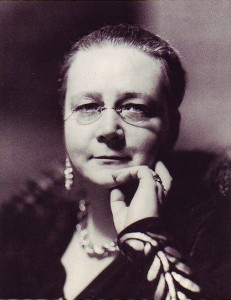
“It would not perhaps be altogether surprising if, in this nominally Christian country, where the Creeds are daily recited, there were a number of people who knew all about Christian doctrine and disliked it,” wrote Dorothy Sayers. She concluded that thought with this: “It is more startling to discover how many people there are who heartily dislike and despise Christianity without having the faintest notion what it is.”
That statement comes from her essay, “The Dogma Is the Drama,” and she springboards from that statement into the reasons why people may have that attitude. She pinpoints the sometimes terrible way in which Christians explain (or attempt to explain) what the faith really is.
For instance, what impression does the general populace get about the nature of God the Father? Do we portray Him as someone who deliberately gives us “conditions impossible of fulfillment,” who shows favoritism toward certain individuals, who is “always ready to pounce on anybody who trips up”? Do they go away from our description of Him thinking that “He is rather like a dictator, only larger and more arbitrary”?

Do we then set Jesus against the Father as the one who wants to be friendly to us and who stands between us and God’s anger? Is He just a Jesus who “was meek and mild and preached a simple religion of love and pacifism”? Does He come across to us as someone with no sense of humor? “If we try to live like him,” Sayers asks, will “God the Father . . . let us off being damned hereafter and only have us tortured in this life instead”?
How do we explain the atonement? Do we imply that “God wanted to damn everybody, but his vindictive sadism was sated by the crucifixion of his own Son”?
And what are Christians supposed to be like? What are the Christian virtues? Sayers suggests that most people might see then as “respectability; childishness; mental timidity; dullness; sentimentality; censoriousness; and depression of spirits.” How do we know that’s how we are perceived?
Whenever an average Christian is represented in a novel or a play, he is pretty sure to be shown practicing one or all of the Seven Deadly Virtues just enumerated, and I am afraid that this is the impression made by the average Christian upon the world at large. . . .
Somehow or other, and with the best intentions, we have shown the world the typical Christian in the likeness of a crashing and rather ill-natured bore–and this in the name of one who assuredly never bored a soul in those thirty-three years during which he passed through the world like a flame.

We have allowed, Sayers believes, “slipshod thinking and trashy sentiment” to infect and infuse our explanation of the true faith.
“If all men are offended because of Christ,” she urges, “let them be offended; but where is the sense of their being offended at something that is not Christ and is nothing like him?”
She concludes,
We do him singularly little honor by watering down his personality till it could not offend a fly. Surely it is not the business of the Church to adapt Christ to men, but to adapt men to Christ.
Are we showing the world the real Jesus Christ? Are we presenting the character of God accurately? Are we manifesting the genuine Christian virtues and not the phony ones? All are questions worth asking ourselves, and we should thank God that writers like Dorothy Sayers make us think seriously about each one.
